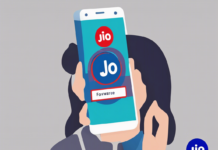Introduction
In the world of Korean webtoons, also known as manhwa, there are a plethora of genres that cater to diverse audiences. Among these genres, there exists a controversial and often taboo theme – incest. While taboo subjects have always been explored in literature and art, the treatment of incestuous relationships in manhwa raises questions about cultural perceptions, storytelling boundaries, and audience reception. This article delves into the portrayal of forbidden love in manhwa, examining themes, motivations, controversies, and the implications of such narratives in the medium.
Defining Incest in Manhwa
In manhwa, incestuous relationships are characterized by romantic or sexual attraction between close blood relatives, such as siblings, parent and child, or even cousins. These relationships challenge societal norms and moral boundaries, often presenting a complex narrative that explores love, desire, guilt, and the consequences of taboo relationships. Unlike Western comics where incest is typically portrayed as immoral or criminal, Korean webtoons delve into nuanced portrayals of forbidden love, blurring the lines between right and wrong.
Exploring Motivations and Themes
The exploration of incest themes in manhwa can be attributed to various motivations and thematic explorations. Firstly, some creators may use incestuous relationships as a plot device to evoke strong emotions and conflict within the story. By presenting a forbidden love affair, creators can delve into themes of societal norms, familial bonds, and the complexities of human relationships.
Moreover, incest narratives can serve as a platform to explore psychological themes such as trauma, emotional repression, and the impact of societal judgment on individuals involved in taboo relationships. By delving into the psyche of characters engaged in incestuous relationships, creators can offer audiences a deeper understanding of human motivations, desires, and the consequences of societal taboos.
Controversies Surrounding Incest in Manhwa
The portrayal of incest themes in manhwa has sparked significant controversies and debates within the comic community. Critics argue that by romanticizing or normalizing taboo relationships, manhwa may contribute to the desensitization of societal taboos and perpetuate harmful stereotypes. Furthermore, the depiction of incest can be seen as exploitative, sensationalist, or even dangerous, especially when targeting younger audiences who may not fully understand the complexities of such relationships.
On the other hand, proponents of incest narratives in manhwa argue that these stories offer a platform for exploring complex human emotions, moral dilemmas, and societal taboos in a creative and thought-provoking manner. By presenting nuanced portrayals of forbidden love, manhwa creators can challenge conventional storytelling norms and push the boundaries of artistic expression, prompting audiences to reflect on their own beliefs and values.
Implications of Incest Themes in Manhwa
The presence of incest themes in manhwa raises important questions about censorship, artistic freedom, and cultural sensitivities. While creators have the right to explore controversial topics in their works, they also bear a responsibility to handle such themes with sensitivity, nuance, and respect for the potential impact on their audience. Moreover, the reception of incest narratives in manhwa can vary significantly depending on the cultural background, age group, and personal beliefs of the audience.
Audiences engaging with manhwa that depict incestuous relationships must navigate complex emotional responses, moral dilemmas, and conflicting societal norms. By immersing themselves in these narratives, readers are confronted with challenging questions about love, family, ethics, and the boundaries of acceptability in storytelling. Ultimately, the presence of incest themes in manhwa prompts audiences to confront their own biases, values, and interpretations of taboo relationships in fiction.
Conclusion
In conclusion, the portrayal of incest themes in manhwa opens up a Pandora’s box of complex emotions, ethical dilemmas, and societal controversies. By exploring forbidden love through the lens of close blood relations, manhwa creators challenge readers to confront their preconceptions, biases, and moral judgments. While the depiction of incest in Korean webtoons may be met with criticism, it also offers a unique opportunity for artistic expression, storytelling innovation, and cultural introspection. As audiences continue to engage with diverse and provocative narratives in manhwa, the exploration of incest themes will undoubtedly remain a contentious and thought-provoking aspect of the medium.
Frequently Asked Questions (FAQs)
- Are incest themes common in manhwa?
-
Incest themes are relatively common in manhwa, with some creators using them as a plot device to explore complex human emotions and societal taboos.
-
How do audiences typically respond to incest themes in manhwa?
-
Audience responses to incest themes in manhwa vary, with some readers appreciating the nuanced exploration of taboo relationships, while others criticize the normalization or romanticization of forbidden love.
-
Are there age restrictions or content warnings for manhwa featuring incest themes?
-
In some cases, manhwa featuring incest themes may come with content warnings or age restrictions due to the sensitive nature of the subject matter.
-
Do creators in the manhwa industry face backlash for exploring incest themes?
-
Creators delving into incest themes may face backlash from critics or readers who find the portrayal of taboo relationships exploitative, offensive, or harmful.
-
How do cultural differences influence the portrayal of incest themes in manhwa?
- Cultural differences play a significant role in shaping the portrayal and reception of incest themes in manhwa, as societal taboos, moral values, and storytelling norms can vary across different cultural contexts.








